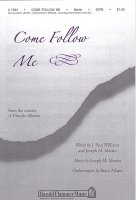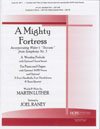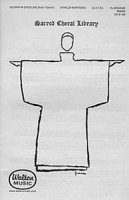 The Qur'an, English translation by M. A. S. Abdel Haleem (Oxford University Press, 2004)
The Qur'an, English translation by M. A. S. Abdel Haleem (Oxford University Press, 2004)
In the most important sense, a holy book cannot be subject to review. It matters little whether or not I consider it holy; the fact that others do puts it in a different category of book. For one thing, one must take greater care than normal to be respectful; that is merely good manners. It also means that as a non-Muslim, I cannot adequately judge the Qur'an on the basis for which it was intended, that is, as spiritual guidance and inspiration for Muslims. And yet, just as there is value in reading the Bible as literature, I believe the Qur'an may profitably be read in the same way. Not to mention that it might be valuable to have at least some familiarity with a book that is so important to the two and a half billion or so Muslims around the world.
There is also the problem of reading a translation. To Muslims, as I understand it, the Qur'an is a holy book in a much more literal sense than the Bible is to Christians. That is, the book itself is holy, not just its contents. What's more, it is the Qur'an in Arabic that really matters, in contrast to the Christian idea that the Bible speaks best to everyone in his native tongue. While it is certainly instructive—essential for seminary students and scholars—to read the Bible in Hebrew and Greek, that is not considered a necessary skill for most Christians. For Muslims, however, you're not really reading or reciting the Qur'an unless it is in Arabic. I'm of two minds about this. On the one hand, it's a great unifying factor, as when Latin was essential in the Catholic church, when priests all over the world could understand each other, and the Mass was basically the same wherever you went. But there's no doubt that true understanding is difficult (impossible?) in a foreign tongue.
The Qur'an itself makes the point repeatedly that it is an Arabic revelation—though I can't resist mentioning that the point being made at the time was that it was in a language the ordinary people understood.
I don't have anything to compare it with, but I will nonetheless give high marks to this particular translation. It is not beautiful English, but it is easy to understand, and the translator has provided just the right amount of commentary, that is, enough to provide historical context and explain certain idioms and literary conventions, while not interrupting unduly the flow of the writing.
Despite all the above caveats, I'll share some of my observations, based on a single read-through: (More)
Our friend David, of Mount Sutro fame, introduced me to Trello. I let his invitation languish for several months, and that was a mistake. Trello, a project management and collaboration tool, turns out to be just what I was looking for to organize much of my everyday life.
A Fact: There is no Philosopher's Stone of tools that will substitute for wise action and hard work. We think that if we find just the right diet trick, it will be easy to lose weight. If we discover the best organizational system, we'll start getting things done. We latch onto some expert's ideas of proper childrearing practices in the desperate hope that if we just follow the rules, our children will "turn out all right." Such quests are doomed to failure.
Another Fact: If tools won't do our work for us, they certainly can leverage our efforts to great effect, and finding the right tool for a task is a worthwhile quest. Sometimes the effect of a good tool can, indeed, seem miraculous. It might even be something small and simple, like the Charleston sweetgrass basket that my mother-in-law gave me, years ago. I'm not one for decorative objects, so I put this one on the desk in our front hall, and started tossing my keys into it as I walked through the door. Miracle: no more hunting for lost keys. If they weren't with me, they were in the basket. Period.
I haven't been using Trello long enough to say for certain that it is one of the miracle tools in my life, but it feels so much like one that I can't wait any longer to share it. You can try it yourself by following this link. I don't know if I'll ever use their collaboration features, but it's been great for managing the many lists of my life.
In a nutshell, Trello allows me to create boards. Within each board are lists, and within the lists are cards. Each card can have a title, a description, comments, and more, including checklists. There's more to it, but that's the basics of what I use.
I've tried many ways of organizing, planning, and keeping track of what I do (and want to do), and have found that I work best with some system of to-do lists. I've absorbed a lot of ideas, and Trello doesn't replace any of them, but it helps a lot with implementation. I love making lists, and seeing my work planned out. I love having reminders and inspiration ready to hand. Most especially I love crossing off a completed task. But until Trello I hadn't found a list system that satisfied me.
I've done best with paper lists, but I do many of the same tasks day after day, and get frustrated writing the same things again and again. I've tried making lists on the computer, using Word and Excel, but either I had to accept them as glorified paper lists, or I had to put 'way too much time into trying to automate them as I liked. I wanted checklists, I wanted to drag and drop items—possible with those tools, but I found it too much work trying to reinvent a wheel I was sure should have been invented already. Enter Trello. (More)
This is for everyone, but especially our grandkids. It's a safe video if you watch it here and don't go directly to YouTube. Actually, there's nothing wrong with watching it on YouTube, except that then the comments are harder to avoid. Internet anonymity is an uncivilizing influence. (H/T Susan D.)
I appreciate that I can place books on hold at our library, knowing that they will be set aside for me as soon as they become available. But I do wonder about the timing sometimes. A while back, I had placed holds on Gretchen Rubin's Better than Before, and on Pioneer Girl, the annotated autobiography of Laura Ingalls Wilder. Several people were ahead of me on the waiting list for each of them, so I was not expecting to read them anytime soon, though with one I was much closer to the top than the other. Wouldn't you know, both books suddenly became available at the same time—right before we left for several days out of town. I had to check them out, or lose my place in line, even though neither was suitable for taking with me on the trip.
We returned a week before the books were due. The normal lending period is three weeks, but for popular books it is reduced to two—with no possibility of renewal. Thanks to some other tasks taking top priority after our return, it wasn't until the weekend that I got very far into Better than Before. And Pioneer Girl? It has 400 pages. Wilder's actual text is in larger print, but the bulk of the book is Pamela Smith Hill's copious, detailed—yea, exhaustive—small-print footnotes. I read it in under 24 hours.
That's not how to read a book. It's like trying to quench your thirst while standing under a waterfall: you get exhausted trying to keep your balance, and end up more drowned than hydrated.
Nonetheless, I did get quite a bit from both books, enough for each to merit its own, upcoming, review. At first I was just going to include very brief comments on them in this post, but "very brief" and I don't keep company much. There's a reason my Tweets are mostly hyperlinks back here.
I think anyone should be able to get to the Posit Science BrainHQ Daily Spark exercises. At least, the e-mail states,
Every weekday, the Daily Spark opens one level of a BrainHQ exercise to all visitors. Play it once to get the feel of it — then again to do your best. Come back the next day for a new level in a different exercise!
If you try and can get to them without paying (even better if without registering), let me know. Or let me know if you can't. Since I have a subscription, I'm not sure what others see.
I find the BrainHQ exercises interesting and challenging, and I really have to get back to doing them on a regular basis.... (95 by 65 goal #70)
The latest product update e-mail just arrived from Twitter. What am I do make of this?
We've launched Periscope, a live, interactive video app that lets you teleport anywhere with a tap.
Should I cancel my plane tickets to Switzerland? I've been waiting for someone to develop teleportation, though I am surprised it comes with so little hype.
Permalink | Read 2216 times | Comments (3)
Category Just for Fun: [first] [previous] [next] [newest]
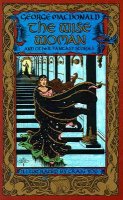 The Wise Woman: A Parable (also known as The Lost Princess, and as A Double Story) by George MacDonald (1875)
The Wise Woman: A Parable (also known as The Lost Princess, and as A Double Story) by George MacDonald (1875)
My project to read all of George MacDonald's books in chronological order (95 by 65 item #61) led me recently to The Wise Woman, and I can well see why C.S. Lewis classed it as one of MacDonald's very best stories, along with Phantastes, the Curdie books, The Golden Key, and Lilith. It's a delight through and through, and more than most fits my prime criterion for a good book: A good book inspires me to be a better person. I realize that distinction doesn't sound very impressive. I don't mean a moralistic book, or a book that tells me to be better; rather, one written in such a way as to provoke, deep within, both the desire to improve and the hope that improvement is not impossible.
The Wise Woman well deserves what Lewis said about the mythopoeic genre—at which MacDonald excelled:
[I]t produces works which give us (at the first meeting) as much delight and (on prolonged acquaintance) as much wisdom and strength as the works of the greatest poets. It is in some ways more akin to music than to poetry—or at least to most poetry. It goes beyond the expression of things we have already felt. It arouses in us sensations we have never had before, never anticipated having, as though we had broken out of our normal mode of consciousness and "possessed joys not promised to our birth." It gets under our skin, hits us at a level deeper; than our thoughts or even our passions, troubles oldest certainties till all questions are reopened, and in general shocks us more fully awake than we are for most of our lives.
Have I made it sound too intimidating? Never mind, then. It's short (116 pages), it's free on Kindle (under the title, A Double Story), and entirely grandchild-safe.
The good news about my 95 by 65 progress for the first quarter of 2015 is that I did not let the project fall by the wayside, I've made steady progress, and I am enjoying the process. I brought the following goals to completion:
#1 Create 95 by 65 list, completed 1/24/2015.
#2 Create the Leon Project, completed 1/12/2015.
#29 Research and purchase food processor, completed 1/30/2015. Some of the safety features are a little frustrating, but on the whole I really like it so far.
#48 Visit King Arthur Flour, completed 2/12/2015. Thanks, Heather!
#56 Join Twitter, completed 2/9/2015. Thanks, Stephan! I haven't yet done anything more with it besides make one tweet and read a few others. I wanted to have it set up in case of emergencies, but so far haven't found any reason to use it otherwise.
#86 Rocket boost genealogy work by end of January 2015 (40 hours of work in segments of 1 or more hours, over approximately 2 weeks), completed 2/1/2015. It was great to put in that much time, and I'd like to do it again (with some modifications), but what I really need to do is set up a system of regular, steady work in smaller chunks, which I haven't done yet. There is so much to do!
The bad news is that I completed only six items in the first quarter, which means I'm working at a rate of two goals per month, well below that needed to accomplish 95 in the 30 months I gave myself. What's more, most of these are relatively easy, short goals, unlike, for example, #91 Organize photos 2007-2011.
But I'm not discouraged. Although I only completed six goals, I've made good progress on several others. Indeed, I added three more accomplished goals to the total so far in April. I'm still behind, so I need to pay attention, and focus. But on the whole I'm happy with the system and my progress so far.
I love it that other people are so supportive in this. Heather took us to visit King Arthur Flour and a new museum (#69); Stephan sent me invitations to Twitter and Google+ (#55), and joined me in reading the Koran (#65); and Porter makes sure I get to new restaurants (#38), Universal Studios (#39), and live performances (#34); nudges me to watch Shakespeare (#67), Great Courses (#66), and NCIS (#40); encourages me to keep running (#18); and arranged for our recent trip to a new state (#44), where we visited four new museums. And more.
That said, it's still an overwhelming list, and I need to get crackin'!
I've written before about Stephen Jepson and his Never Leave the Playground program. Now he has added brachiation to his collection of fitness "toys." Note his interesting form, without the usual swinging action of the body.
Note that Jepson's solution for an easier version while building up strength is very similar to ours, though his also works when the weather's too cold for swimming. I'll have to remember that!
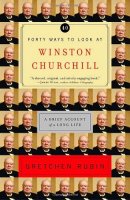 Forty Ways to Look at Winston Churchill by Gretchen Rubin (Ballentine Books, 2003)
Forty Ways to Look at Winston Churchill by Gretchen Rubin (Ballentine Books, 2003)
What can Gretchen Rubin, famous for her books on happiness (The Happiness Project, Happier at Home), add to the multitude of books written about Churchill? Plenty, it turns out—at least if you are as ignorant of history as I am. Porter found it less interesting, because for him, there was little new.
My own interest in this book was piqued for a couple of reasons. While I was checking our library for Rubin's latest book, Better than Before, this—written well before her happiness books—popped up. Because we had recently watched the excellent Great Courses series on Churchill, I snapped it up.
My knowledge of Churchill being essentially no more than I had learned through those lectures, it was good, not tiresome, to hear the same stories again. Plus, the strength of Rubin's book is not in depth or special insight, but because she pulls together views of the man from many different biographical sources, demonstrating in the process just how difficult it is to write a biography—and impossible to write an unbiased one. In fact, the only real weakness I see in Rubin's book is that she can't hide her own great admiration for the man: she can't write the opposing side convincingly. But the facts are there, positive and negative, and I highly recommend Forty Ways as an easy-to-read introduction to this brilliant, complex man and his indomitable spirit.
Disclaimer: I don't know who Matt Walsh is, although a quick search revealed that he is making enough waves that there's a website called whatismattwalshwrongabouttoday.com. That's okay; if people feel the need to attack him, he's probably doing something right, and in any case, he gets this one really, really right: “You’re a stay-at-home mom? What do you DO all day?” (H/T Jon) This husband's homage to his wife was inspired by conversations like the following:
“So is your wife staying at home permanently?”
“Permanently? Well, for the foreseeable future she will be raising the kids full time, yes.”
“Yeah, mine is 14 now. But I’ve had a career the whole time as well. I can’t imagine being a stay at home mom. I would get so antsy. [Giggles] What does she DO all day?”
“Oh, just absolutely everything. What do you do all day?”
“…Me? Ha! I WORK!”
“My wife never stops working. Meanwhile, it’s the middle of the afternoon and we’re both at a coffee shop. I’m sure my wife would love to have time to sit down and drink a coffee. It’s nice to get a break, isn’t it?”
The conversation ended less amicably than it began.
Walsh's whole commentary is worth reading. Here are some snippets.
Look, I don’t cast aspersions on women who work outside of the home. I understand that many of them are forced into it because they are single mothers, or because one income simply isn’t enough to meet the financial needs of their family. Or they just choose to work because that’s what they want to do. Fine. I also understand that most “professional” women aren’t rude, pompous and smug, like the two I met recently. ... But I don’t want to sing Kumbaya right now. I want to kick our backwards, materialistic society in the shins and say, “GET YOUR FREAKING HEAD ON STRAIGHT, SOCIETY.”
In making his point, the author fails to mention that there are other essential professions (sometimes lacking in respect), and that any legitimate work done with excellence and integrity has value, often great value. Cut him (and me) some slack: it doesn't change the truth of what he says. Our society has elevated employment, almost any employment, over work that does not bring in a paycheck, especially if the non-paying work involves home and family, like rearing children or caring for elderly parents.
It’s true — being a mom isn’t a “job.” A job is something you do for part of the day and then stop doing. You get a paycheck. You have unions and benefits and break rooms. I’ve had many jobs; it’s nothing spectacular or mystical. I don’t quite understand why we’ve elevated “the workforce” to this hallowed status. Where do we get our idea of it? The Communist Manifesto? Having a job is necessary for some — it is for me — but it isn’t liberating or empowering. Whatever your job is — you are expendable. You are a number. You are a calculation. You are a servant. You can be replaced, and you will be replaced eventually. Am I being harsh? No, I’m being someone who has a job. I’m being real. ... If your mother quit her role as mother, entire lives would be turned upside down; society would suffer greatly. The ripples of that tragedy would be felt for generations. If she quit her job as a computer analyst, she’d be replaced in four days and nobody would care.
Having been both computer analyst and mother, I can attest to what he says. Guess which career garnered the most admiration and accolades?
Of course not all women can be at home full time. It’s one thing to acknowledge that; it’s quite another to paint it as the ideal. To call it the ideal, is to claim that children IDEALLY would spend LESS time around their mothers. This is madness. Pure madness. It isn’t ideal, and it isn’t neutral. The more time a mother can spend raising her kids, the better. The better for them, the better for their souls, the better for the community, the better for humanity. Period.
The following may be my favorite paragraph of the whole article.
Finally, it’s probably true that stay at home moms have some down time. People who work outside the home have down time, too. In fact, there are many, many jobs that consist primarily of down time, with little spurts of menial activity strewn throughout. In any case, I’m not looking to get into a fight about who is “busier.” We seem to value our time so little, that we find our worth based on how little of it we have. In other words, we’ve idolized “being busy,” and confused it with being “important.” You can be busy but unimportant, just as you can be important but not busy. I don’t know who is busiest, and I don’t care. It doesn’t matter. I think it’s safe to say that none of us are as busy as we think we are; and however busy we actually are, it’s more than we need to be.
I think I'll change my advice to those who are asked the condescending and offensive question, "What do you DO all day?" And I'd apply it to almost any profession, not just motherhood—no one from the outside can really know what it takes to do another's job. First, I'd quote Elbert Hubbard: Never explain—your friends do not need it and your enemies will not believe you anyway. Then I'd suggest this as a response:
That's a trade secret, and revealing it is against the rules of our Guild.
Permalink | Read 2272 times | Comments (9)
Category Children & Family Issues: [first] [previous] [next] [newest] Random Musings: [first] [previous] [next] [newest]
For us, Easter started last night with an Easter Vigil service that was over two hours long, but wonderful. Lighting of the New Fire, procession, candles, singing, and a large number of baptisms (adult and child), confirmations, and first communions. The latter is why it was so long, but who would want fewer? I love that our church has a means of doing infant baptism by immersion (parents' choice). I also love that moment when the lights come on and we shout the first Alleluia of Easter—alleluias are banished from the service during Lent—with the whole congregation sounding bells and other happy noisemakers. (There were a few unhappy noisemakers as well, as it was a long and late night for the above-mentioned children.) I brought my tambourine, and Porter the ship's bell that Dad had given us so long ago. The latter makes quite an impressive sound.
And this morning we got to celebrate again! One of these years I expect we'll attend each and every service from Palm Sunday through Easter, one for each day of the week and two on Sunday, but not this time: once again we skipped the sunrise service, as getting to church by 8:00 for the Easter brunch seemed early enough after our late night. The youth choir sang at the sunrise service and had to be there at 6:15 to help with setup; the service is held down by the lake. I know, it seems backwards: we keep the little kids up late, and wake the teenagers early. But it's a very special time, and sacrifice is part of the process. The brunch was followed by an egg hunt for the children, but we skipped that, because (1) our grandchildren weren't here to enjoy it, and (2) the choir rehearsed during that time for the final service of the day at 10:00.
Of all the services, that one is the most traditional as modern-day Easter services go. (The Easter Vigil is actually the oldest, dating back to the very early days of Christianity.)
Prelude and Introit: A Mighty Fortress (Martin Luther, setting by Joel Raney, Hope Publishing) Judging by YouTube, the handbell version is more popular, but if you click on the link (not the image) you'll hear something more like what we had, with our brass, flute, organ, piano, and choir. My only complaint is that because it is primarily an instrumental work, the choir sings only one verse of the hymn, and the first verse of Luther's great hymn is not a good place to stop. But that was okay, because I doubt the congregation actually discerned the words over the glory of the brass and organ.
Next up, the processional hymn Jesus Christ Is Risen Today, then
Gloria in Excelsis (Vivaldi-Martens, Walton Music HL08500628 W2043), for the Gloria, of course.
Happy Easter, everyone!
UPDATE 11/11/19 Aaaaargh! As I've pointed out innumerable times, when Flash in these posts was automatically converted to iframe, which needed to be done, significant portions of the post were often accidentally deleted. Normally this doen't matter much, but in a post like this, with so much information and many videos, it really hurts. Still, it will stay like this until I find time and priority to see if there's a way to recover the data.
I've said it before, and it's still true: how blessed we are to be at a church ten minutes away from home (seven in good traffic). We've been in that situation before—in Rochester (NY) our church was only a block from home, and in Norwood (MA) it was a fine walk in good weather—but much of our time has been in churches that required significant driving time. Being so close makes it easy, or as easy as can be with busy schedules, to attend the mid-week (Monday - Saturday) Holy Week services, which are always so powerful.
For a more complete description of the general layout, see last year's Holy Week post. This year is much the same, albeit with some changes in the music. Here are the major ones:
Maundy Thursday anthem:
When I Survey the Wondrous Cross (arr. Gilbert Martin, Theodore Presser Company, 312-40785)
Good Friday anthem:
When Jesus Wept (William Billings, arr. A. F. Schultz, St. James Music Press
This is not the Parker/Shaw arrangement some of you know, which remains my favorite. However, this is also a good one, and I'm sorry I can't include a link here. All of my Internet sources have failed me this time.
We won't be singing as a choir for the Easter Vigil service tonight, but we'll be there with bells on. (Almost literally—mine may be a tambourine. Bells and other joyful noise makers are for the Great Alleluia of Easter.)
Then we get to celebrate all over again tomorrow, with a lot more music and joyful alleluias. But that will be for another post.
I'd planned to post this on Easter itself, but then I figured, why let it get lost among all the other Easter music I'll be posting? It's a brand-new Easter song, and every choir singer knows it's best to learn new songs before the actual event.
Not that many of you will be learning the words, since they are in German. I won't attempt a translation, but the text is based on the traditional Easter hymn, "Christ the Lord Is Risen Today." But the music is exciting, and even if you don't know German, I almost guarantee that if you listen a few times, the chorus will stay with you. As earworms go, it's a great one.
Here's the cool part: This new Easter song was written (music and text) by none other than our own Stephan Stücklin.
Here's the question: Can a German praise song go viral on YouTube? :)
Congratulations, Stephan; I think it's great and hope it spreads like wildfire throughout German-speaking churches. I'd happily sing it in our own church, but while the choir will occasionally sing in Latin (albeit reluctantly on the part of some), we've already drawn the line at French. (Cantique de Jean Racine in English is better than not at all, but....). I'm not too hopeful that German praise songs will become as popular here as English praise songs are in the German-speaking world.
I've copied the text below, in case anyone wants to attempt a translation. Google Translate gets the chorus perfectly:
Jesus is risen!
He is risen indeed!
Hallelujah!
But in some places their translation is downright peculiar, e.g.
Let us seek drum of the heart
After our main and Savior
Stephan, would you care to elucidate?
Jesus ist erstanden!
(Text by Stephan Stücklin, based on Charles Wesley's "Christ the Lord Is Risen Today")Chorus:
Jesus ist erstanden!
Er ist wahrhaftig auferstanden!
Halleluja!
Christen, lasst die Kehlen klingen!
Stimmt mit Engelschören ein
Unserm Gott ein Lob zu singen
Freudenfest soll heute sein, denn (chorus)
Tod, dein Stachel ist gezogen
Unser König Jesus lebt!
Deine Macht ist nun verflogen
Und kein Christ mehr vor dir bebt, denn (chorus)
Liebe hat ihr Werk vollendet
Grab, gesprengt ist dein Verlies!
Christus hat das Blatt gewendet
Uns gehört das Paradies, denn (chorus)
Wir sind sein, durch Kreuz und Leben
Nun droht uns kein Ungemach!
Lasst uns drum von Herzen streben
Unserm Haupt und Heiland nach, denn (chorus)

